Keynote Speaker
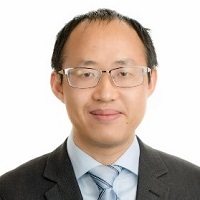 |
Prof. Yong Zeng (IEEE Fellow), Southeast University, China Yong Zeng, IEEE Fellow, Young Chief Professor of Southeast University and Purple Mountain Laboratory, Nanjing, China. He received the Bachelor of Engineering (First-Class Honours) and Ph.D. degrees from Nanyang Technological University (NTU), Singapore. From 2013 to 2018, he was a Research Fellow and Senior Research Fellow at the National University of Singapore (NUS). From 2018 to 2019, he was a Lecturer at the University of Sydney, Australia. Prof. Zeng was listed as Clarivate Analytics Highly Cited Researcher for 7 consecutive years (2019-2025), AI2000 Most Influential Scholars in the field of Internet of Things for 4 consecutive years (2021-2024), Stanford "Top 2% of Scientists in the World - Lifetime Influence". Prof. Zeng is the recipient of Australia Research Council (ARC) Discovery Early Career Researcher Award (DECRA), IEEE Communications Society Asia-Pacific Outstanding Young Researcher Award, and won 10 international and domestic best paper awards including IEEE Marconi Award (2020 and 2024), Heinrich Hertz Award (2017 and 2020), etc. Prof. Zeng proposed the concept of channel knowledge map (CKM), and his works have been cited by more than 34,000 times. He serves on the editorial board of SCI journals such as IEEE Transactions on Communications, IEEE Transactions on Mobile Computing, and IEEE Communications Letters, and leading guest editor of journals including IEEE ComMag, Wireless ComMag, China Communications, and Science China Information Sciences. Prof. Zeng was elevated to IEEE Fellow “for contributions to unmanned aerial vehicle communications and wireless power transfer”. Speech Title: Intelligent Channel Knowledge Map with Generative AI for Environment-Aware ISAC Abstract: Existing wireless communication and sensing systems are mainly based on the traditional “environment-unaware” paradigm, which fails to fully exploit the prior information of the local wireless environment, resulting in inefficient environment sensing and channel acquisition. This makes it difficult to meet the future needs with the developing trends such as larger channel dimensions, higher node densities, and more cost-effective hardware. On the other hand, the recently proposed concept of channel knowledge map (CKM) aims to build channel knowledge foundations that learn the intrinsic characteristics of the local wireless environment by fusing massive historical data of all terminals in the area, thereby enables the direct acquisition of environmental priors in advance based on (virtual) terminal location information. This enables the paradigm shift from the traditional environment-unaware to the future environment-aware communication and sensing, offering new ideas for efficient environment sensing and channel acquisition. This talk will introduce the latest research progress in the construction and application of CKM. By discussing the basic principles of CKM, typical cases of communication and sensing based on CKM, the theories and methods of CKM construction based on generative AI, as well as preliminary experimental verification, we will try to answer the five fundamental questions about CKM (2W+3H): What is CKM, why needs CKM, how to build and utilize CKM, and how to build prototypes? |
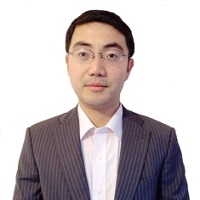 |
|
Prof. Huanhuan Chen (IEEE Fellow), University of Science and Technology of China Chen Huanhuan, IEEE Fellow, AAIA Fellow, is a national high-level leading talent. He is a professor at the School of Computer Science, University of Science and Technology of China. He has published more than 200 papers in leading international journals such as IEEE Transactions on Neural Networks and Learning Systems, IEEE Transactions on Knowledge and Data Engineering, as well as top international AI conferences including ICML, KDD, and NeurIPS. He has received plenty of awards, including the 2024 Wang Kuancheng Talent Award, the First Prize of the 2022 Anhui Provincial Teaching Achievement Award, the Outstanding Supervisor Award of the Chinese Academy of Sciences, the Prize of the Ministry of Education Natural Science Award, the INNS Young Scientist Award, and the IEEE Transactions on Neural Networks Best Paper Award. His doctoral dissertation received the IEEE Computational Intelligence Society Outstanding Dissertation Award and the BCS Distinguished Dissertation Award in the UK. He has also been recognized with the Outstanding Associate Editor Award from IEEE Transactions on Neural Networks and Learning Systems, along with the TETCI Outstanding Associate Editor Award. As principal investigator, he has led several major projects, including the “Key Technologies for Cross-media Causal Reasoning and Decision-making” project under the Science and Technology Innovation 2030—New Generation Artificial Intelligence Major Project; National Key R&D Program on Basic Theory and Applications of Big Data Knowledge Engineering; a Major Program of the NSFC; an NSFC Key Project; several NSFC General Program projects; an NSFC–Royal Society joint research project; and major provincial projects in Anhui. Speech Title: Causal Learning and its Applications Abstract: In recent years, causal learning has gradually become a research hotspot in artificial intelligence. The talk introduces the content related to causal discovery, causal inference, and decision-making. It will provide an overview of the development progress and the latest technologies in this field. Through application cases in several scenarios, the talk will demonstrate the robustness and interpretability advantages of causal learning. |
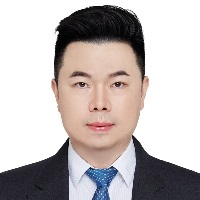 |
Prof. Xin Luo (IEEE Fellow), Southwest University, China Xin Luo (Fellow, IEEE) received the B.S. degree in computer science from the University of Electronic Science and Technology of China, Chengdu, China, in 2005, and the Ph.D. degree in computer science from the Beihang University, Beijing, China, in 2011. He is currently a Professor of Data Science and Computational Intelligence with the College of Computer and Information Science, Southwest University, Chongqing, China. He has authored or coauthored over 400 papers (including over 160 IEEE Transactions/Journal papers) in the areas of Artificial Intelligence and Data Science. Dr. Luo was the recipient of the Outstanding Associate Editor Award from IEEE Access in 2018, IEEE/CAA Journal of Automatica Sinica in 2020, and from IEEE Transactions on Neural Networks and Learning Systems in 2022-2024. He is currently serving as an Associate Editor for IEEE Transactions on Neural Networks and Learning Systems, and IEEE/CAA Journal of Automatica Sinica. His page is https://scholar.google.com/citations?user=hyGlDs4AAAAJ&hl=zh-TW. Speech Title: Nonstandard Tensor Networks Abstract: Complex and temporal interactions among numerous nodes are frequently encountered in large-scale big data-related applications such as the recommender systems, social network service systems, and cryptocurrency network transaction systems. Such interactions data can be quantized into a step-N (N≥3) tensor whose most entries are unknown, i.e., a nonstandard tensor. Despite its highly incompleteness, such a nonstandard tensor contains rich information regarding various desired patterns like the unknown interactions or undetected communities. To discover such patterns, this talk presents the latent factorization of tensors (LFT) models. An LFT model addresses the known data of the target nonstandard tensor in a data density-oriented way and establish highly efficient optimization algorithms for extracting desired latent features from it, thus implementing its representation learning accurately and efficiently. An LFT model has the great potential for industrial usage owing to its high efficiency in both computation and storage. |
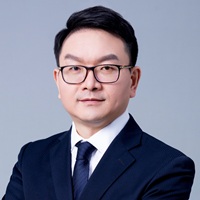 |
Prof. Yang Yang, (IEEE Fellow), the Shanghai Center, Hong Kong University of Science and Technology, China Dr. Yang Yang is a Professor with the Shanghai Center, Hong Kong University of Science and Technology, China. His research interests include multi-tier computing networks, 5G/6G systems, AIoT technologies, intelligent services and applications, and advanced wireless testbeds. He has published more than 300 papers and filed more than 120 technical patents in these research areas. Yang is a Fellow of the IEEE. Speech Title: Collaborative Edge Computing for Large AI Models on Wireless Networks Abstract: Large AI models have emerged as a crucial element in various intelligent applications at the network edge, such as voice assistants in smart homes and autonomous robotics in smart factories. Computing big AI models, e.g., for personalized fine-tuning and continual serving, poses significant challenges to edge devices due to the inherent conflict between limited computing resources and intensive workload associated with training. Despite the constraints of on-device training, traditional approaches usually resort to aggregating data and sending it to a remote cloud for centralized computation. Nevertheless, this approach is neither sustainable, which strains long-range backhaul transmission and energy-consuming datacenters, nor safely private, which shares users’ raw data with remote infrastructures. To address these challenges, we alternatively observe that prevalent edge environments usually contain a diverse collection of trusted edge devices with untapped idle resources, which can be leveraged for edge training acceleration. Motivated by this, we propose to leverage edge collaboration, a novel mechanism that orchestrates a group of trusted edge devices as a resource pool, for expedited, sustainable large AI model computing at the edge. As an initial step, we present a comprehensive framework for building collaborative edge computing systems and analyze in-depth its merits and sustainable scheduling choices following its workflow. To further investigate the impact of its parallelism design, we empirically study a case of four typical parallelisms from the perspective of energy demand with realistic testbeds. Finally, we discuss open challenges for sustainable edge collaboration to point to future directions of edge-centric large AI model computing. |
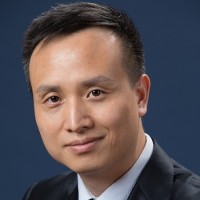 |
Prof. Shengcai Liao (IEEE Fellow), United Arab Emirates University, UAE Dr. Shengcai Liao is an Associate Professor and founding director of the Computer Vision Lab (CVLab) in the College of Information Technology (CIT) in UAEU. He is an IEEE Fellow and IAPR Fellow. He was a Principal Scientist in IIAI, G42 in UAE during 2018-2024, and an Associate Professor in Institute of Automation, Chinese Academy of Sciences (CASIA) from 2014 to 2018. He received B.S. degree in mathematics from Sun Yat-sen University in 2005 and Ph.D. degree from CASIA in 2010. He was a Postdoc at Michigan State University during 2010-2012. He is interested in face and person detection, recognition, analysis, and image and video generation. He has published 100+ papers, with over 23,000 citations and h-index 57. He ranks #905 among 215,114 world-wide AI scientists (Top 0.42%) in 2019 (by Stanford University). His representative work LOMO+XQDA for person re-identification has been cited over 2,600 times and ranks #11 in Most Influential CVPR Papers 2015. He was awarded Best Paper/Best Student Paper in ICB 2006/2007/2015, and CCBR 2016, Best/Outstanding Reviewer in IJCB 2014, CVPR 2019/2021, Great Contribution Award for Beijing 2008 Olympic Games, and Second-Class Award of the China State Science and Technology Progress Award 2019. He served as an Assistant Editor for “Encyclopedia of Biometrics, 2nd Ed.”, Guest Associate Editor for IEEE T-BIOM, and Associate Editor for IEEE TPAMI, TIP and TMM. He served as Program Chair for IJCB 2022 and ICIG 2025, and Area Chair for CVPR 2022-2025, ICCV 2023-2025, ICML 2025-2026, NeurIPS 2023-2025, AAAI 2026, ECCV 2024, and WACV 2024-2025. Speech Title: High‑Fidelity Personalized Human Image Generation Abstract: Personalized human image generation aims to synthesize images of a specific individual that match the creator’s intent and high standards of realism. Applications include avatar creation, virtual production, digital marketing, fashion try-on, telepresence, education, and assistive design, which has driven rapid growth in research and practice. Despite this momentum, three challenges remain central: instruction following, visual fidelity, and identity consistency. Instruction following means executing complex, compositional prompts with precise control over attributes, actions, and context. Visual fidelity concerns photorealistic detail with robustness to artifacts, occlusions, lighting changes, and unusual poses. Identity consistency requires preserving a subject’s likeness across poses, styles, scenes, and broad prompt variations without drift. Building on this framing, we introduce methods that improve controllability for personalized subjects, raise portrait-level realism, and explicitly model and stabilize identity under diverse generations. We also outline practical evaluation protocols, and open challenges for deploying reliable and responsible personalization. |
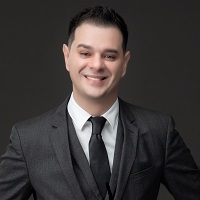 |
Prof. Nikolaos M. Freris, University of Science and Technology of China, China Nick Freris is Professor in the School of Computer Science at USTC and former Vice Dean of the InternaDonal College (2019-2024). He received the Diploma in Electrical and Computer Engineering from the NaDonal Technical University of Athens (NTUA), Greece, in 2005, and the M.S. degree in Electrical and Computer Engineering, the M.S. degree in MathemaDcs, and the Ph.D. degree in Electrical and Computer Engineering all from the University of Illinois at Urbana-Champaign (UIUC) in 2007, 2008, and 2010, respectively. Speech Title: SpiRobs: Bioinspired Soft Spiral Robots Abstract: SpiRobs morphologically replicate the spiral pa8ern that is ubiquitous in natural organisms (elephant, octopus, chameleon, etc.). They are easy and fast to build across arbitrary scale via 3D prinDng. Cable actuaDon allows for fast and life-like movements. Besides, a single robot can handle a wide variety of objects (in terms of size, shape, and weight). A key to this is a bioinspired grasping strategy from the octopus. Finally, I will also demonstrate a wide range of prototypes, including a miniaturized gripper, a manipulator mounted on a drone, and mulD-robot arrays that can grasp in a tendril-like fashion. A video descripDon is available at: h8ps://www.bilibili.com/video/BV1CDCVYtEoW. |
